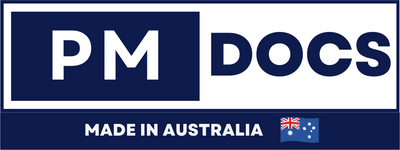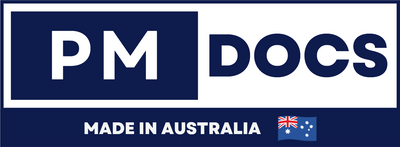Benefits Of GDPR Toolkit For Australian Enterprises
Introduction
In the era of digital commerce and global connectivity, data privacy has become a paramount concern for businesses worldwide. The General Data Protection Regulation (GDPR) established by the European Union is one of the most comprehensive frameworks designed to protect individuals' personal data and privacy rights. Although it is a regulation rooted in European law, its global implications are felt far and wide, including in Australia. As Australian enterprises navigate the complexities of international operations, integrating a GDPR Toolkit can yield significant benefits that extend beyond compliance, offering strategic advantages in the competitive marketplace.

Why GDPR Matters For Australian Enterprises?
Below are key points that underline the significance of GDPR for Australian businesses.
1. Global Operations and Compliance Requirements
Many Australian companies conduct business in Europe or are part of international supply chains. GDPR applies to any organization that processes the personal data of EU residents, regardless of the company’s location. This means that Australian enterprises need to ensure compliance to avoid heavy fines and legal repercussions.
2. Enhancing Consumer Trust
Adhering to GDPR can enhance consumer confidence in Australian businesses. As data privacy becomes a significant concern for consumers, demonstrating a commitment to GDPR not only aligns with best practices but also promotes a sense of security and trust among clients and stakeholders.
3. Avoiding Financial Penalties
Non-compliance with GDPR can result in substantial penalties, with fines reaching up to 4% of a company's annual global turnover or €20 million (whichever is greater). For Australian enterprises, the potential financial implications underline the necessity of implementing solid data protection measures.
4. Competitive Advantage
Incorporating GDPR principles can provide Australian enterprises a competitive edge. By showcasing rigorous data protection protocols, businesses can differentiate themselves in the market, appealing to increasingly data-conscious consumers and partners.
5. Transparency and Accountability
GDPR encourages organizations to adopt a culture of transparency and accountability. Australian enterprises can benefit by establishing robust data governance policies that enhance internal processes and improve overall data management, fostering a comprehensive understanding of data handling practices.
6. Improved Data Management Practices
Aligning with GDPR can lead to better data management and protection practices within Australian enterprises. This includes adopting measures such as data minimization, purpose limitation, and regular auditing, which not only comply with regulations but also enhance operational efficiency.
7. Preparing for Future Regulations
GDPR sets a precedent for data protection regulations around the world. By establishing compliance with GDPR, Australian businesses position themselves as forward-thinking and prepared for any future local legislation that may mirror such international standards.
Case Example: How An Australian Enterprise Benefits From A GDPR Toolkit
Introduction
In an interconnected world where data privacy is paramount, the General Data Protection Regulation (GDPR) has set a high standard for data protection and privacy across Europe and beyond. While the regulation primarily targets European Union member states, its implications have reach far and wide, affecting businesses globally, including those in Australia. This article explores how a prominent Australian enterprise leveraged a GDPR toolkit to enhance its data governance, security, and compliance strategies in a competitive market.
The Enterprise: Tech Solutions Australia
Tech Solutions Australia (TSA), a leading IT service provider based in Sydney, specializes in cloud computing, data management, and cybersecurity solutions. With a diverse client base, including several international corporations, TSA recognized the need to align its operations with GDPR requirements not only to comply with the law but also to establish itself as a trusted entity in the eyes of its clients.
The Challenge
Despite being situated outside the EU, TSA faced significant challenges due to the GDPR's extraterritorial reach. The company had clients and partners operating within the EU, necessitating a thorough understanding and implementation of GDPR principles. The company struggled with data management issues, including consent acquisition, data access requests, and privacy concerns related to cross-border data transfers. This situation prompted TSA to explore available tools and frameworks to facilitate compliance with GDPR standards.
The Solution: Implementing A GDPR Toolkit
TSA turned to a comprehensive GDPR toolkit designed for businesses looking to improve data privacy practices. This toolkit included a range of resources such as templates for privacy notices, data processing agreements, risk assessment checklists, and guidelines for GDPR compliance training.
Key Features Of The GDPR Toolkit
1. Data Mapping Tool: The toolkit provided TSA with a data mapping resource that allowed the company to effectively catalog personal data, identify its sources, and understand how it was being used. This clarity confirmed which data elements were subject to GDPR and required protection.
2. Consent Management: Tailored consent management solutions within the toolkit helped TSA develop clear and concise consent forms that aligned with GDPR requirements. This ensured that the company could manage user permissions seamlessly and transparently.
3. Risk Assessment Framework: The toolkit included a risk assessment framework that enabled TSA to evaluate its data processing activities, identify potential vulnerabilities, and implement relevant mitigation strategies.
4. Training Resources: The GDPR toolkit came with training materials to educate TSA employees on data protection measures, fostering a culture of privacy awareness across the organization.
The Benefits
By implementing the GDPR toolkit, TSA was able to achieve significant milestones in its data governance and compliance strategy.
1. Enhanced Trust and Client Relationships - One of the most notable benefits was the enhanced trust from both existing and potential clients. By demonstrating compliance with GDPR standards, TSA positioned itself as a responsible business partner, leading to increased client loyalty and the acquisition of new clients from the EU.
2. Streamlined Operations - The data mapping and consent management features of the toolkit contributed to streamlined operations. TSA was able to reduce complexities related to data handling, ensuring that all personal data collected met regulatory obligations.
3. Proactive Risk Management - Through the risk assessment framework, TSA developed a proactive approach towards identifying and mitigating risks surrounding data privacy. This foresight not only reduced the likelihood of data breaches but also positioned the company favorably during audits and compliance checks.
Conclusion Of The Case Example
The case of Tech Solutions Australia illustrates how an Australian enterprise can significantly benefit from adopting a GDPR toolkit. In a global economy where data privacy is increasingly scrutinized, taking proactive measures towards GDPR compliance has proven essential for TSA. By leveraging the resources provided in the toolkit, the company has not only ensured compliance but has also strengthened its market position and client relationships. As regulations evolve, the importance of such strategic tools in navigating data protection laws remains undeniably crucial for enterprises worldwide.
Core Benefits Of A GDPR Toolkit For Australian Enterprises
1. Enhanced Compliance - Ensures adherence to data protection regulations, minimizing legal risks.
2. Improved Data Management - Streamlines data collection, storage, and processing, leading to better organization.
3. Increased Customer Trust - Demonstrates commitment to privacy, fostering trust and loyalty among clients.
4. Risk Mitigation - Identifies potential vulnerabilities, allowing proactive measures to protect sensitive information.
5. Facilitated Training and Awareness - Provides resources for employee education on data privacy and compliance protocols.
6. Simplified Reporting Processes - Standardizes documentation and reporting, making it easier to respond to regulatory requests.
7. Competitive Advantage - Positions the enterprise favorably in the market by showcasing robust data protection practices.
8. Global Market Access - Enables easier entry into markets with stringent data protection laws, enhancing business opportunities.
Conclusion
The adoption of a GDPR Toolkit presents numerous advantages for Australian enterprises navigating the intricate landscape of data privacy regulations. By enhancing compliance with international standards, improving data management, increasing customer trust, fostering proactive risk management, and streamlining data protection processes, businesses can not only safeguard their operations but also leverage data protection as a strategic asset.




